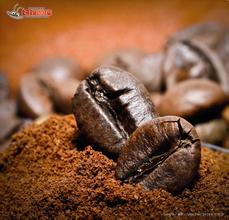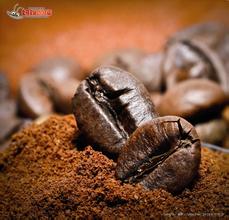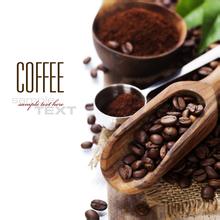Introduction to the production area of grinding scale by the method of describing the flavor of Pacamara coffee beans treated with El Salvador honey
Introduction to the production area of grinding scale by the method of describing the flavor of Pacamara coffee beans treated with El Salvador honey
Coffee from El Salvador is a specialty of Central America, where it is light, fragrant, pure and slightly sour. Like Guatemala and Costa Rica, coffee in El Salvador is graded according to altitude, and the higher the altitude, the better the coffee. The best brand is Pipil, which is what the Azbec-Mayan (Aztec Mayan) called coffee, which has been approved by the American Organic Certification Society (Organic Certified Institute of America). Another rare coffee is Pacamara, a hybrid of Pacas and Maragogype. The best place to produce the coffee is in western El Salvador, adjacent to Santa Ana, which is close to the border with Guatemala. Parkmara coffee is full-grained, when the flavor is not too strong El Salvador (El Salvador) is one of the small countries in Central America, very densely populated. The flavor of its coffee is characterized by excellent balance.
Today, this coffee accounts for 40% of the country's exports. 35% of the extra hard beans of the best coffee are exported to Germany from January to March.
In the early 1990s, guerrilla warfare greatly damaged the country's national economy, reducing coffee production from 3.5 million bags in the early 1970s to 2.5 million bags in 1990-1991. The eastern part of the country was most affected by guerrilla warfare, and many farmers and workers were forced to leave the manor. The shortage of funds has led to a sharp drop in coffee production, from 1200 kg per hectare in the past to less than 900kg per hectare today. In addition, the government imposed an additional 15% tariff on exported coffee in 1986, that is, an additional 15% in addition to the existing 30% tax. Taxes, together with unfavorable exchange rates, have greatly reduced the export of coffee and the quality of coffee.
Flavor: balanced taste and good texture
Recommended baking method: moderate to deep, with a variety of uses
Top quality beans: El Salvador SHB
Taste characteristics: sour, bitter, sweet mild and moderate.
Salvadoran coffee ranks side by side with Mexico and Guatemala as the producers of Asa and Merdo, and is fighting for the top one or two places in China and the United States with other countries. The highlands of origin are large coffee beans of all sizes, which are fragrant and mild in taste. Like Guatemala and Costa Rica, coffee in El Salvador is graded according to altitude. The higher the altitude, the better the coffee. It is divided into three grades according to elevation: SHB (strictlyhighgrown) = highlands, HEC (highgrowncentral) = mid-highlands, and CS (centralstandard) = lowlands. The best brand is Pipil, which is what the Aztec-Mayan (Aztec-Mayan) called coffee, which has been recognized by the American Organic Certification Society (OrganicCertifiedlnstituteofAmerica).

Important Notice :
前街咖啡 FrontStreet Coffee has moved to new addredd:
FrontStreet Coffee Address: 315,Donghua East Road,GuangZhou
Tel:020 38364473
- Prev

Description of the characteristics and Flavor of Tanzania Coffee beans introduction to the Grinding scale of the Regional treatment method for Taste production
Description of the characteristics and flavor of Tanzanian coffee beans the famous coffee brands in Tanzania are Africafe, Tanica Cafe and Kilimanjaro. Tanzanian coffee has long been loved by Europeans and has joined the ranks of famous products. A nickname given by the Europeans to a coffee gentleman in Tanzania. Africafe Coffee, AA for Tanzania
- Next

Flavor description and treatment of Katim Coffee beans in Yunnan introduction of Grinding scale in producing areas
According to the application of Yunnan Dehong Tropical Agricultural Science Research Institute, the National Tropical crop Variety approval Committee organized relevant experts in Mangshi and Ruili, Dehong Prefecture, Yunnan Province, on the spot of Katim CIFC (F6), a small grain coffee variety declared by Dehong Rezuo.
Related
- Detailed explanation of Jadeite planting Land in Panamanian Jadeite Manor introduction to the grading system of Jadeite competitive bidding, Red bid, Green bid and Rose Summer
- Story of Coffee planting in Brenka region of Costa Rica Stonehenge Manor anaerobic heavy honey treatment of flavor mouth
- What's on the barrel of Blue Mountain Coffee beans?
- Can American coffee also pull flowers? How to use hot American style to pull out a good-looking pattern?
- Can you make a cold extract with coffee beans? What is the right proportion for cold-extracted coffee formula?
- Indonesian PWN Gold Mandrine Coffee Origin Features Flavor How to Chong? Mandolin coffee is American.
- A brief introduction to the flavor characteristics of Brazilian yellow bourbon coffee beans
- What is the effect of different water quality on the flavor of cold-extracted coffee? What kind of water is best for brewing coffee?
- Why do you think of Rose Summer whenever you mention Panamanian coffee?
- Introduction to the characteristics of authentic blue mountain coffee bean producing areas? What is the CIB Coffee Authority in Jamaica?

